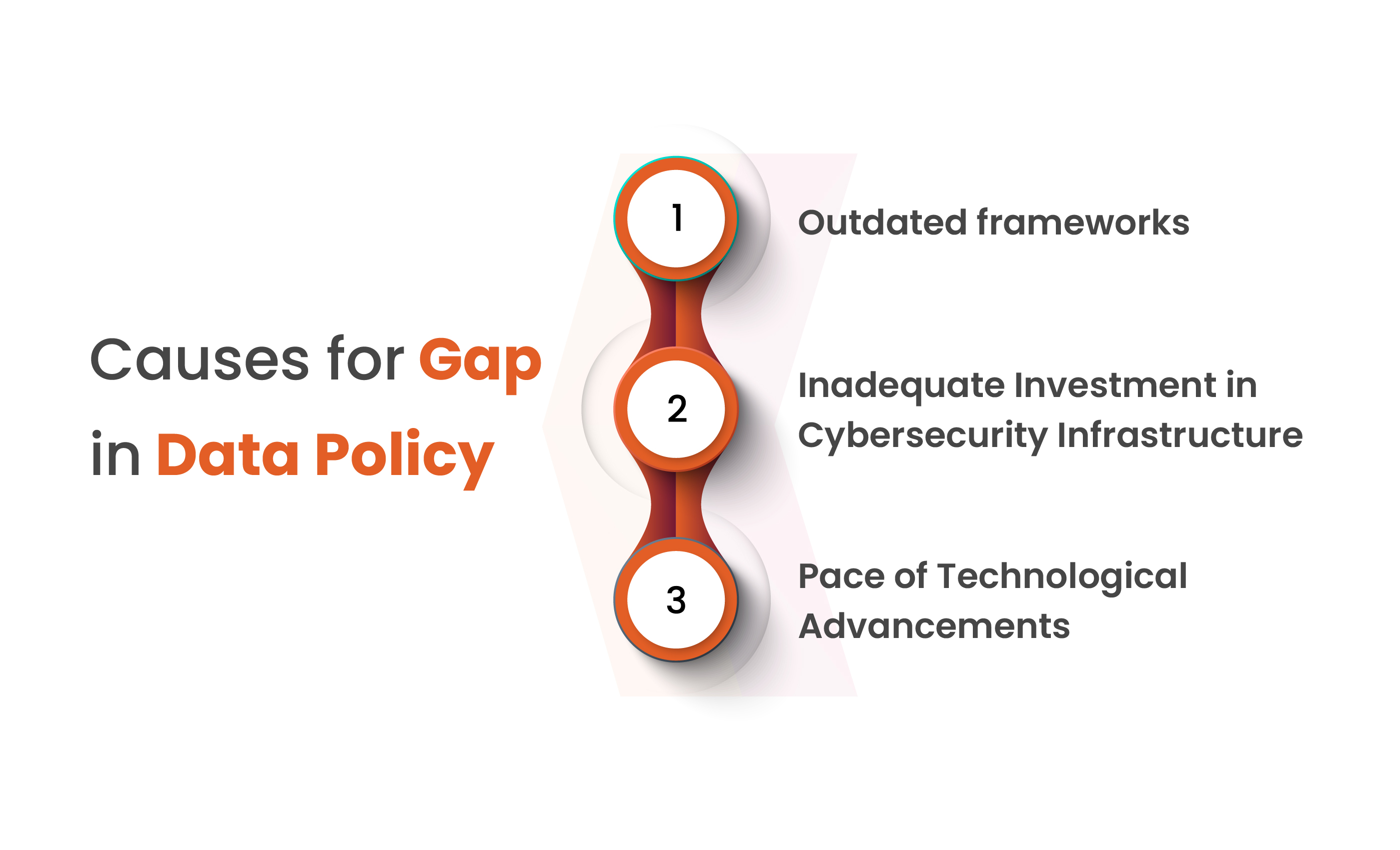Source: securityboulevard.com – Author: Shikha Dhingra
A recent study by Rubrik, a US-based data security firm, has bare concerning reality within the Indian IT sector: an alarming 49% of IT leaders feel that security remains a glaring omission within their organization’s data policies. This discovery sheds light on a crucial aspect of data management that has to be addressed right now and strategically.
In essence, this finding implies that a substantial portion of IT leaders in Indian organizations perceive a notable break in their data policies concerning security measures. This perceived gap might encompass various facets, including but not limited to encryption standards, access controls, threat detection mechanisms, or a lack of comprehensive strategies to combat emerging cyber threats.
Global Data Loss Trends
According to the report, an emerged on a global scale: approximately fifty percent of organizations surveyed across the world encountered the loss of sensitive data within the past year. This figure is extremely concerning as it suggests a widespread problem affecting many sectors and geographical areas. When you consider the vast amount of information that has been exposed, the importance of this endeavor becomes clear. The research also notes that an astounding 24 billion records containing sensitive information have been exposed. These figures undoubtedly contain unique information, such as Personally Identifying Information, economic data, or confidential company facts, which makes their disclosure a serious matter.
It is difficult to overestimate the impact of this worldwide trend. It emphasizes how often data breaches occur and how highly vulnerable businesses are in a variety of industries and locations. These breaches now not only present immediate risks to reputational enterprises but also have long-term effects on customer satisfaction, regulatory compliance, and the larger financial system.
Book a Free Consultation with our Cyber Security Experts

Implications of Data Loss
Data loss has significant ramifications, impacting organizations on multiple fronts. Here are some implications:
Losing Customer Trust
Customers’ confidence in an organization’s ability to secure their data is ruined by breaches. Loss of trust can lead to reduced customer loyalty and impact future interactions with the brand.
Reputational Damage
Data breaches damage a logo’s recognition, affecting the public’s opinion of a company’s dependability and integrity. Breach-related negative exposure may have long-term consequences for brand image and market standing.
Compliance Challenges
Regulatory non-compliance, which may result in critical penalties often results in data breaches. Businesses may be exposed to cyber threats and regulatory repercussions if they disregard facts and safety regulations.
Root Causes of Gap in Data Policies
The following are some of the root causes contributing to vulnerabilities in cybersecurity:
Outdated Frameworks
Legacy systems and outdated security frameworks frequently lack the sophistication needed to defend against modern cyber attacks. Their inability to adjust to new hazards and their incompatibility with current security standards are major causes of problems.
Inadequate Investment in cyber security Infrastructure
The underfunding of cybersecurity sports hampers the deployment of robust safety features. The adoption of complete security protocols and innovative technologies can be hampered by budgetary restrictions.
The Pace of Technological Advancements
The rapid pace of technological progress generates vulnerabilities that surpass the adaptability of current security measures. Failure to securely integrate new technologies may lead to system weaknesses and loopholes.

India’s Path Forward
The Rubrik study serves as a clarion call for the Indian IT industry. It highlights the urgent need for a paradigm change that prioritizes and strengthens information security elements. India can set the pace for a more stable virtual future by adopting cutting-edge technologies, promoting strict regulatory frameworks, and cultivating a culture of cybersecurity awareness. Outlining India’s pathway forward in protecting data security based on the insights from the Rubrik study involves several key strategies:
Embracing Advanced Technologies
Indian IT corporations must prioritize the adoption of current cybersecurity solutions to guard their organization. This entails investing in today’s technologies inclusive of AI-pushed risk detection, anomaly detection through device mastering, and automatic response mechanisms. Additionally, making sure steady cloud infrastructures and robust encryption methodologies across data transmission and storage is vital. Embracing encryption practices throughout the data lifecycle is pivotal for safeguarding sensitive information in today’s threat landscape.
Fostering Culture of Cybersecurity Awareness
Employees at all organizational levels should enroll in regular cybersecurity education to ensure that they are fully aware of the dangers associated with phishing attempts and that they also wish to follow safety precautions. It’s also crucial to set up a work environment that puts safety first and incorporates security measures into all decision-making and operational processes. Promoting a proactive stance when it comes to reporting events or protection issues is crucial for reducing risks and supporting the organization’s standard safety procedure.
Stringent Regulatory Frameworks
Collaboration with regulatory bodies plays a crucial role in advocating for robust data protection laws and regulations. Engaging actively in the development of comprehensive legal frameworks is vital to ensure data security and privacy. Additionally, a strong focus on compliance and enforcement within the IT sector is necessary. Strict adherence to existing and evolving data protection laws and regulatory standards is imperative, holding organizations accountable for maintaining and implementing robust security measures across the board.
Conclusion
Rubrik’s study serves as a wake-up call for Indian IT leaders, shedding light on the glaring omission of security within data policies. The alarming statistic that nearly half of IT leaders perceive this gap underscores the urgent need for strategic intervention and heightened vigilance. The global trend of data loss further emphasizes the magnitude of the challenge, with billions of sensitive records compromised worldwide.
Addressing the root causes, such as outdated frameworks, inadequate investments, and the rapid pace of technological advancements, is imperative to protect data policies and cybersecurity measures. Rubrik’s leaders stress the importance of immediate action, advocating for clearer visibility into data, robust cyber resilience plans, and fostering a culture of cybersecurity awareness.
Kratikal, a CERT-In empanelled auditor, plays a crucial role in bolstering security. Our expertise provides unmatched insights and robust protection against the persistent threat of cyberattacks. By working together with Kratikal, companies may proactively find and fix security flaws, stopping malevolent hackers from making use of them.
The post Indian IT Leaders Identify Security Gap in Data Policies appeared first on Kratikal Blogs.
*** This is a Security Bloggers Network syndicated blog from Kratikal Blogs authored by Shikha Dhingra. Read the original post at: https://kratikal.com/blog/indian-it-leaders-identify-security-gap-in-data-policies/
Original Post URL: https://securityboulevard.com/2023/12/indian-it-leaders-identify-security-gap-in-data-policies/
Category & Tags: Cloud Security,Security Bloggers Network,Cloud VAPT – Cloud Security,Security Bloggers Network,Cloud VAPT
Views: 0




















































